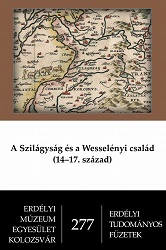

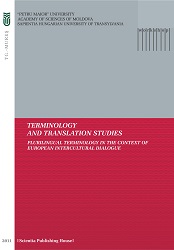
Keywords: translation;modal meanings
In the article we present the translation of English modal meanings in Hungarian source texts. We have analyzed English and Hungarian law and literal text from that point of view. The differences show the slight change or modification of modal meanings. The study presents the forms of modification of modal values in translation, and emphasizes that the differences are often rooted in the different modal categories at word level of Hungarian and English. Sometimes the modal meaning differences at syntax level can change the meaning of a whole passage of a text. The analyses show that modal meanings are meta-information in the translation, which need extra attention during the translation activity.
More...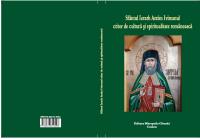
Keywords: confessors of Oltenia; communist prisons; official reports; Carbunesti-Gorj.
The fruits of St. Antim the Iberian are many, not just those known to be related to his personality. Thus, his words have multiplied faith and strengthened the beliefs of those who were born hundreds of years away in the lands he had crossed. The priests who suffered during the communist regime were able to resist the executioners with the power of faith and with the support of saints’ prayers.
More...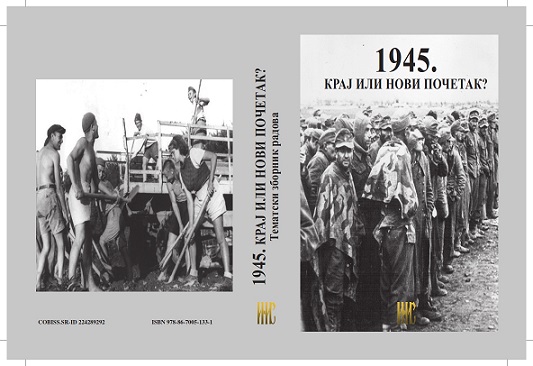
Keywords: Bleiburg; Croatian Exiles; British post-war policy; war criminals; Fermo;
This article highlights ways in which British military and political personnel acted towards Croatian refugees fleeing the Communist takeover in the final stages of World War II and thereafter. Although events relating to the surrender o f various pro-German and anti-Communist forces at Bleiburg, a town in south Austria near the border with Yugoslavia, and the following quarrel over "war criminals" from Yugoslavia is a complex affair, this contribution examines sources shedding light on British perspectives on the Croatian part, notwithstanding that the developments and problems treated here also affected Serbian, Slovenian and (ethnic) German nationals. As a result of this study, the changes in the intentions of the decision makers in London as well as the principal-agent problem become transparent.
More...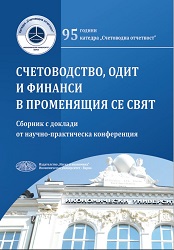
Keywords: insurance; pension; individual coefficient
The pensions - mostly from the public scheme - are the main source of income for older Bulgarians, who represent a significant and growing part of the country's population. Although reformed, the pension system continues to be refined and adapted constantly with a number of changes in the regulatory framework. This creates uncertainty and raises doubts and dissatisfaction with society, and makes issues related to the pension system increasingly relevant. The purpose of this report is to present the key changes in pension insurance inBulgaria and on the basis of the latest regulatory changes to reveal the challenges the system poses to current and future retirees in the country.
More...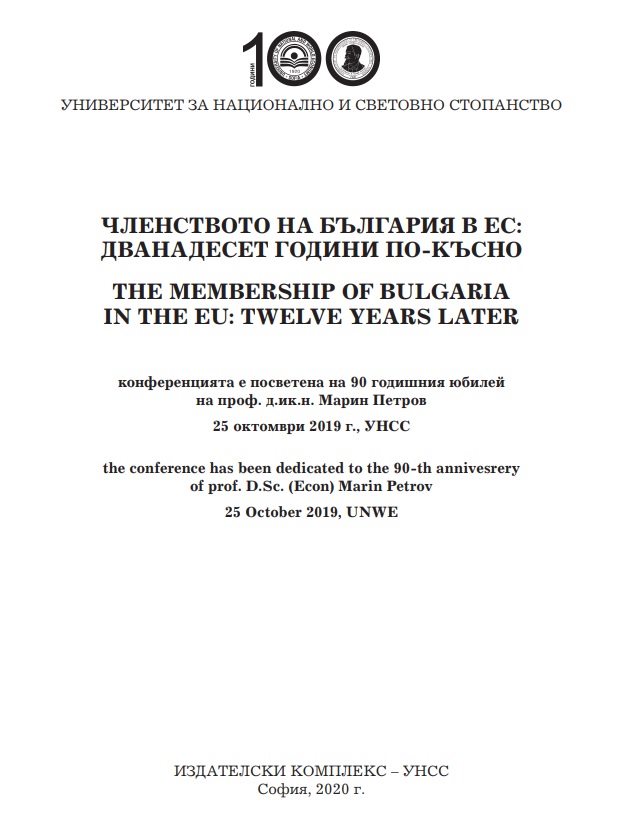
Keywords: FIDIC contract conditions; Environment; European Union
This paper presents a brief review and analysis regarding the impact of the FIDIC Conditions of Contract and, in particular, the opportunities which they suggest in terms of efficient resource management and, generally, the projects in their two main aspects: adherence to established beforehand time schedule and project implementation up to a financial resource defined through negotiations between the dedicated national institutions and beneficiaries in the environmental protection field.
More...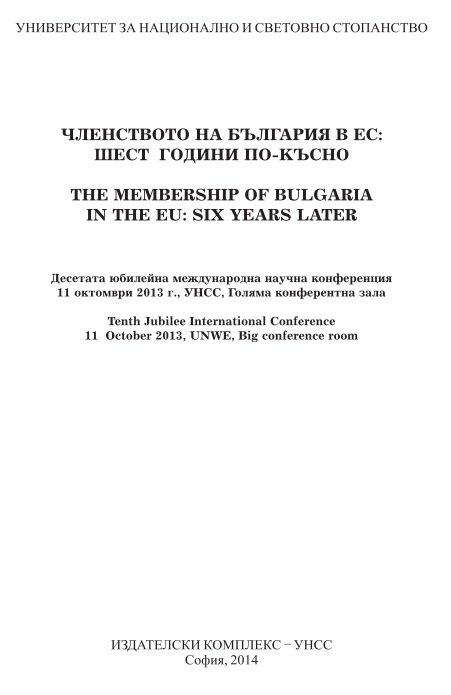
Keywords: Turkey; EU; Accession Negotiations; Benefits; Obstacles; Economy; Army; Alternatives
The aim of this paper is to present the political, social and, to some extent, economic circumstances of the ongoing process of European integration of Turkey. The author will try to highlight the key obstacles to Turkish membership in the EU, and to clearly point out the specific benefits that this country has made on the road to EU accession. In this paper we will first exhibit historical circumstances which "traced" Turkey in EU direction, and then proceeded with a brief chronology of the accession process. After that we will analyze the main causes of the Turkish "stumbling" on the European path. Weak political pluralism, compromised human and minority rights, the Cyprus issue and disputes with Greece, are problems which Turkey has to positively resolve in order to achieve progress in the accession negotiations. Also, major problem is the negative perception of Turkish EU membership among many political leaders and EU citizens. After that, we will deal with particular benefits that Turkey has achieved thanks to the implementation of the Association Agreement. From the economic point of view Turkey undoubtedly benefited from its "harmonization" with EU. EU market remains the largest export market for Turkish goods, and part of the explanation of its current economic boom should be sought in the actual economic arrangements with the EU that eased Turkey access to the markets of most developed European countries. More than a third of Turkey's total exports goes to EU countries and about 80% of all foreign direct investment to Turkey comes from the EU. However, the main "benefit" that the EU process has brought to Turkey was not economic. In fact, it was the process of accession to the EU that provide civil authorities with arguments to put powerful Turkish army under civil control. The specific steps were taken in 2003, and were related to the reform of the National Security Council. In that year Turkish Majlis approved so-called "seventh reform package" for harmonization with the EU, which significantly weakened the military capacity of interference in the affairs of civil government. Thereby, the National Security Council was stripped of executive power and it's role of "watchdog" was abolished. Also, this security body lost previous possibility of unlimited access to civilian institutions. After that, the EU has repeatedly made it clear that they will not allow any toying with the concept of democracy, and openly distanced itself from the traditional Turkish formula of Army as the "guardian" of democracy. In the final part we will analyze the current Turkish foreign policy, attempting to answer the question whether on Bosporus currently some new, not so much "Western" winds are blowing? In recent years, Turkey extremely sharpened its rhetoric toward the EU. The culmination of this trend was the actualization of the Cyprus issue and Turkey's threats to completely freeze relations with the EU during the Cyprus EU Presidency in the second half of the 2012th. Also public support to EU integration project is facing a drastic decline. In line to the public mood, Turkish political elite increasingly talk about alternative integration – BRICS and Shanghai Cooperation Organization.
More...
The article makes use of unknown manuscript and printed sources from the 17th century pre‑senting death of Jerzy, a one year son of Krzysztof and Anna Radziwiłł. In the light of these materi‑als it is possible to bring the Old‑Polish attitude towards children’s death closer and reconstruct thedetails of pompa funebris at that time.The letters of Protestant clerics, above all, preserved condolences offered to the hetman. Also,they contain notes on preparations for the funeral and occasional publishing houses concerning thedead. One of such prints is Lacrymae exequiales in obitum praeproperum Georgii Radivilli infantisa studiosis Gymnasi Birzensis fusae which consists of the Polish poems by Rajski brothers. Theauthors, comforting princess Anna, referred to, among other things, Jan Kochanowski’s Laments.What remained was also a copy of the speech given during the funeral of Jerzy Radziwiłł. It isa thanksgiving oration on behalf of the dead’s family, directed at the participants of the ceremony.An anonymous author referred to the authority of Heraclitus of Ephesus and cited The Bible, aboveall, The Book of Psalms and The Book of Job many times.
More...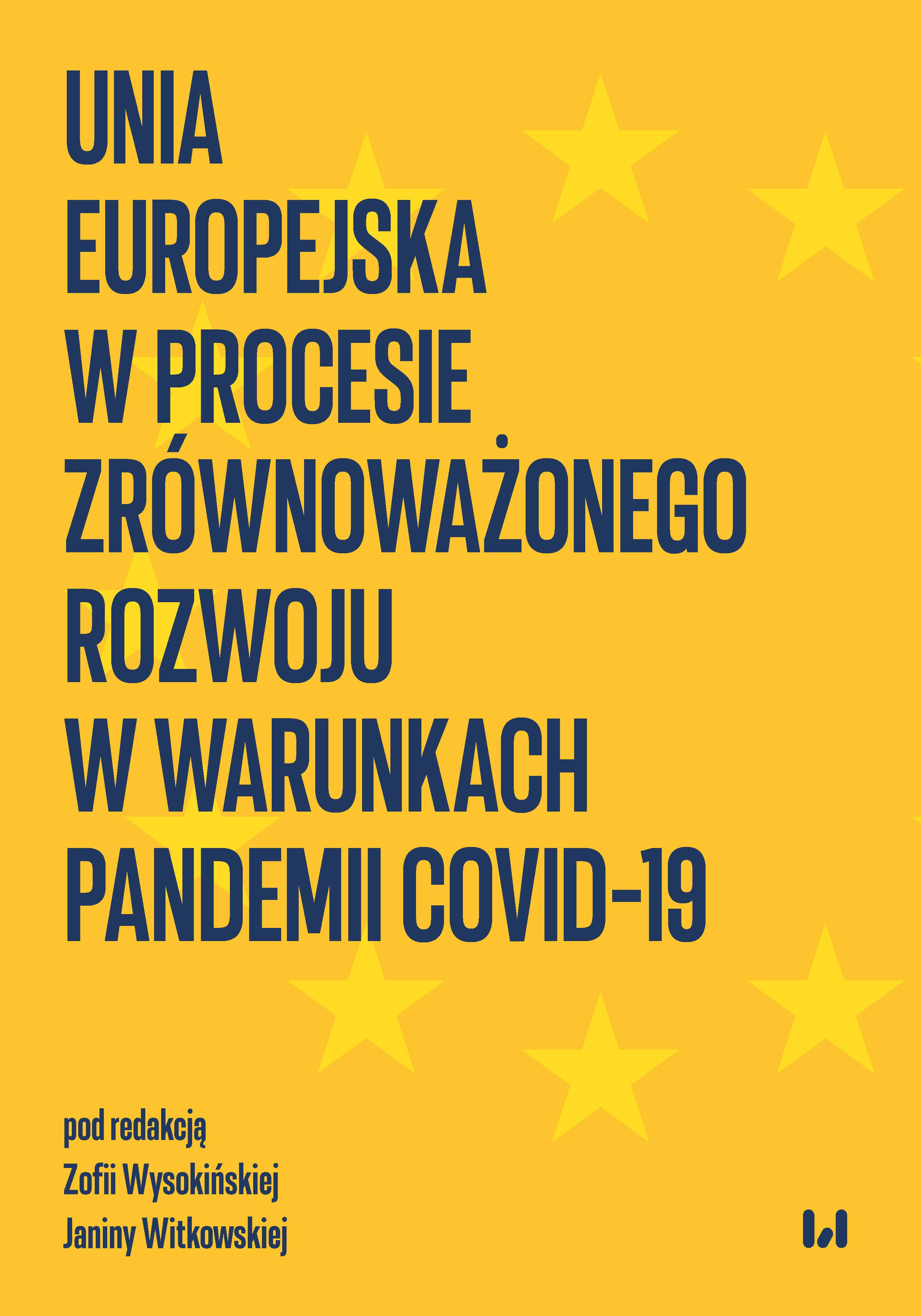
Keywords: European Union; digital economy; international trade; Digital Compass; e-commerce
The chapter aims to answer the following question: How has the European Union’s international trade developed in terms of goods and geography in the last two years, and to what extent has it been resilient to the effects of the COVID-19 pandemic?. The results of the conducted research show that the global economy experienced a huge decline in trade in goods and services during the COVID-19 pandemic. World trade in goods fell by 7.4% in 2020, which means that global exports amounted to USD 17.6 trillion, i.e., USD 1.4 trillion less than in the previous year. It was the largest annual decline since the 2009 recession, when trade fell by 22%. However, a much stronger decline was recorded in world trade in services, which in 2020 shrank by 20% compared to 2019. During the COVID-19 pandemic, the dynamic development of global e-commerce was noted. According to the data presented in the UNCTAD report of May 3, 2021, global e-commerce increased to USD 26.7 billion. Business-to-business (B2B) sales dominate in e-commerce. E-commerce accounts for 30% of the world’s gross domestic product (GDP) and covers both business-to-business (B2B) and business-to-consumer (B2C) sales.
More...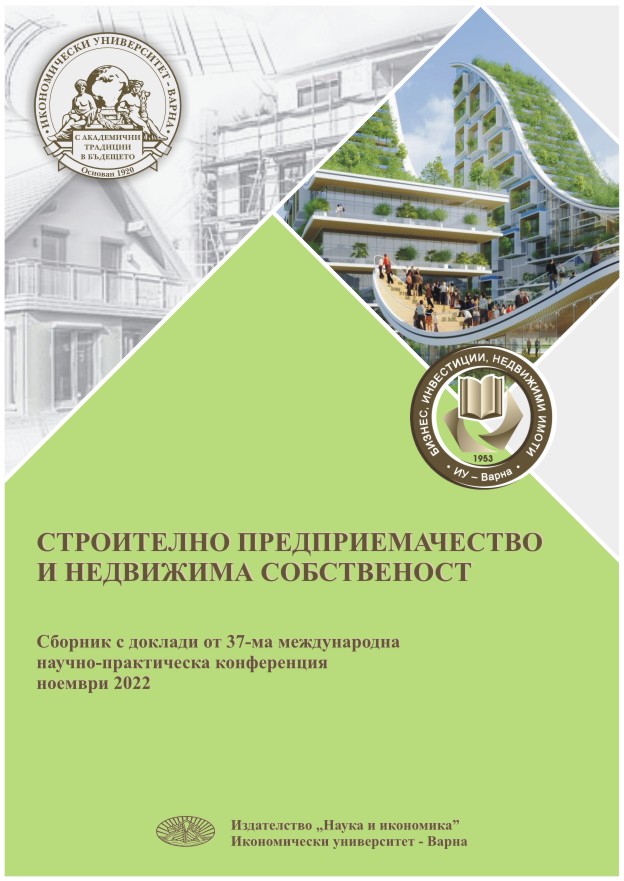
Keywords: Construction sector; Labour market; Employees; Salary; Trend models; Forecasting
The report researches the labor market in the Construction sector. It is one of the leading sectors in the Bulgarian economy. Regardless of the phases of the economic cycle in which it is lo-cated, construction has a significant contribution to the economic growth. It has a relatively constant share in the gross domestic product. At this time, it is one of the most sensitive to the economic crisis and shocks. It recovers relatively slowly. Labor migration and uncompetitive incomes further exac-erbate the negative trends. A leading trend in the development of the employees and the average salary in the sector has been identified. It is done a comparative analysis of the effect of the global financial and economic crisis on labor market indicators. Employment is found to be much more sensitive to the crisis than salary. Estimates have been done on the future values of labor market.
More...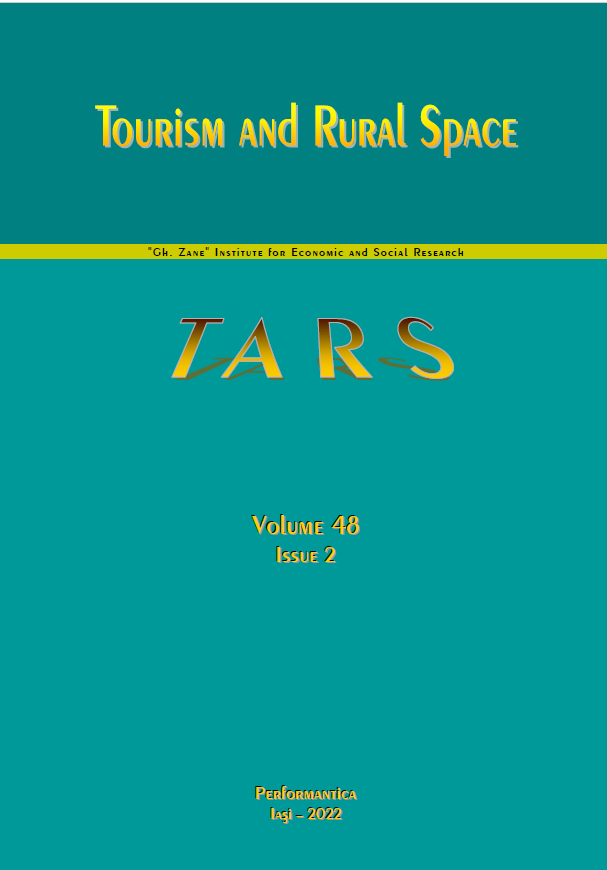
Keywords: SWOT analysis; Tourism; Management; Benefits Factors of influence; Development;
In the current conditions of the COVID-19 pandemic, the tourism industry of Ukraine needs more than ever strategic development and the development of a universal scheme of strategic management of tourism development. Prospects for the use of SWOT analysis as an effective management tool will contribute to the implementation in accordance with the selected priorities of regulation and management of tourism development. The study considers the theoretical foundations of using SWOT analysis as one of the tools of strategic analysis. Based on the results of strategic analysis, priorities for tourism development are developed, as well as strategies for counteracting negative factors. Peculiarities and significance of SWOT analysis as a tool for tourism development management in Ukraine in the conditions of the COVID-19 pandemic have been studied. In accordance with the selected priorities, modern management concepts for the development of the industry are being implemented. Its main advantages and disadvantages for optimizing the management of tourism and recreation are noted. Factors influencing the development of the tourism industry of Ukraine and Romania based on the use of SWOT analysis are summarized. In the current conditions of the COVID-19 pandemic, special attention should be paid to the development of management tools in tourism. One of such effective tools is SWOT analysis, the results of which are the basis for determining the strategic directions of development of the tourism industry and optimizing the management of tourism and recreation.
More...
Keywords: Alternative tourism; Bibliometric analysis; Google Scholar;
The ever-growing and changing tourism sector offers alternative touristic products and promove. In parallel with the developments in the world, besides coastal tourism shaped by the sea-sand-sun trio, many alternative tourism types are coming out in Turkey. In the study, it is aimed to examine the bibliometric profiles of the articles titled “alternative tourism” within the framework of the determined parameters. In this context, the articles published between 2000-2022 were derived from the Google Scholar database. 42 articles accessed as a result of the searches lay with different variables with frequency analysis and graphics. The articles were examined on the basis of criteria such as the year they were published, the journal they were published in, the research method and research variables. As a result of this evaluation, it was seen that the most articles on alternative tourism were published in 2008. It has been determined that the research variables are mostly alternative tourism potential and centers. Theoretical studies are relatively more numerous than empirical studies. In terms of the findings, it is thought that the study will provide an important and comprehensive resource that researchers can benefit from. Other findings of the study show that the number of studies on alternative tourism has increased in recent years.
More...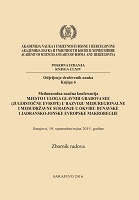
Keywords: city of Sarajevo: functions; development; human resources; physical planning;
This paper analyzes the city of Sarajevo as the focal point of the development of spatial planning. Thanks to its functions, the city of Sarajevo has, as often stressed, a focal significance in spatial planning. With the development of different branches of production activities, primarily industry and the production of handicrafts, cities organize the production of a variety of goods, not only within their borders but also in the wider surrounding area. A city is a specific form of human population whose size maintains the meaning of its functions in the area. In accordance with the socio-economic and other factors of development, the forms and dynamics of spatial planning of cities are different. In the city of Sarajevo, there are all the basic functions of human life (living in the community, working, supplying oneself, educating oneself, having leisure activities, and transport and communications) which affects the rapid changes in the appearance, structure and functions of spatial components. Based on the above facts, it can be seen that the area of influence of the city of Sarajevo can be differentiated into zones of varying degrees of socio-economic transformation and zones of functional connections with the city. This question is given a high priority in the world, as evidenced by the large number of scientific papers. In this paper, the attention will be devoted to the development as the focal point of regional planning of Sarajevo and its surroundings. Spatial planning is one of the most important contemporary features of the world. Space management makes it an essential element of rational and humane use of space and organization of vital functions, adjusting the planning with technical and technological development as a phenomenon of our times and the necessities of life of the population. Spatial planning is carried out on the basis of spatial and urban planning. This kind of spatial planning is the result of pronounced differences in development and lifestyle between cities and villages, hence there is the intense migration of population from rural areas to the city of Sarajevo. The increase in urban population ranges mostly within the dynamics of growth of the total population. The focus of spatial planning in terms of concentration of population, jobs and housing developments is moved to the edges and the suburban areas of Sarajevo. There also occur changes in the structure of population and degree of urbanization of Sarajevo from year to year. This primarily relates to the separation of urban settlements. It was therefore necessary to allocate these places according to the model which gives a more realistic picture of the number of urban settlements and the share of the urban population.
More...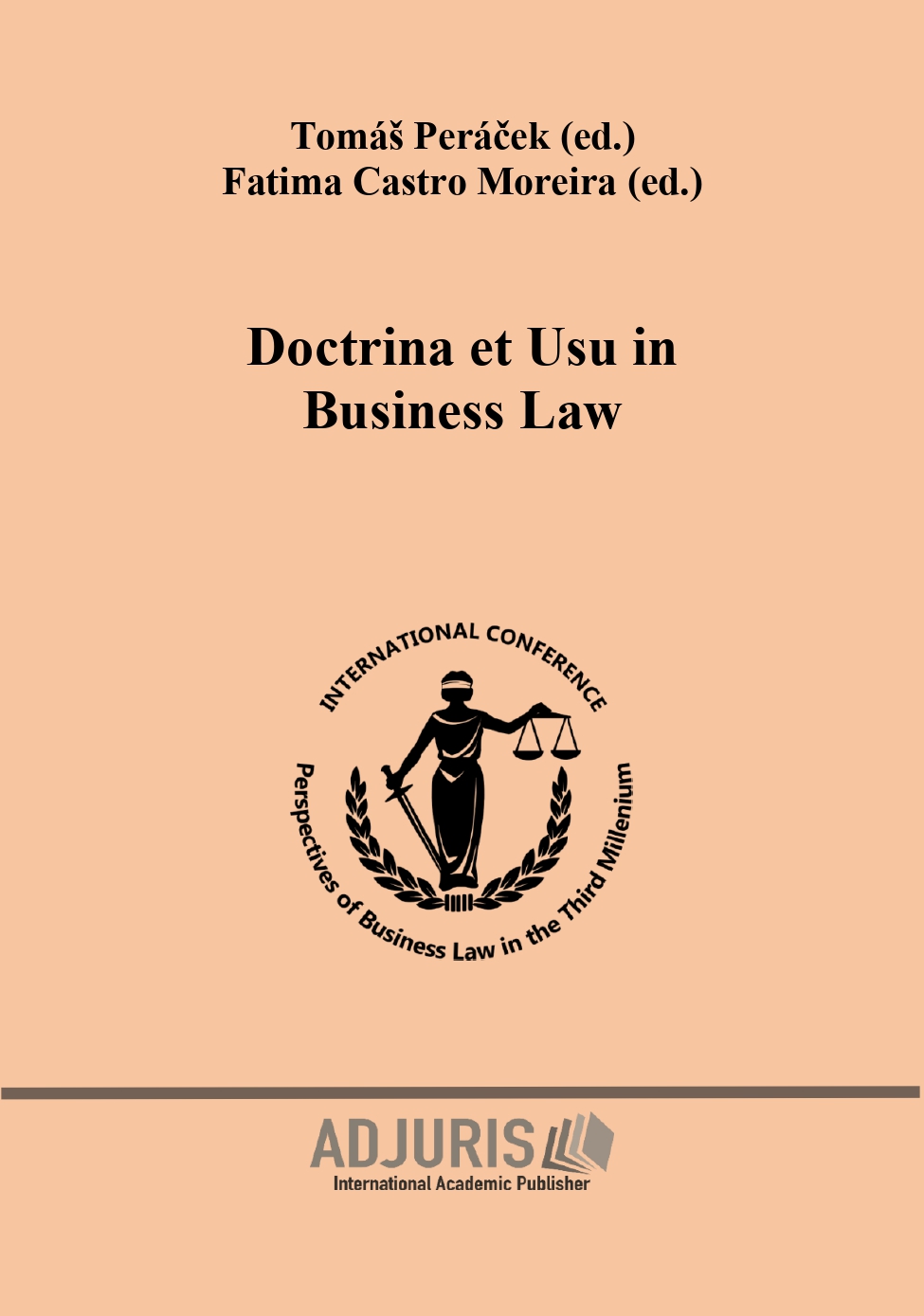
Keywords: tax consolidation; consolidated tax result; tax group; corporate income tax; tax loss;
The objectives of the study are to analyze the advantages and disadvantages of tax consolidation in the field of corporate income tax. It is also important to highlight the rationale for tax consolidation and the possible legislative improvements that are needed to achieve the aim pursued by the legislator. The main research tools were the legal provisions on tax consolidation, the literature analyzing and interpreting this field, and the identification of conclusions from the specific practice of taxpayers who have encountered problems, have asked the same questions or perhaps have found the answers necessary for this research. This mechanism provides both administrative and financial advantages for affiliated companies that must file a single group return, calculate taxable bases and taxable profits in a uniform way, avoiding both compliance costs and the risk of double taxation of the same taxable profit. However, the legislator has not succeeded by this regulation in removing the obligation for affiliated companies that are part of the consolidated tax group to draw up the transfer pricing file, which remains a financially burdensome obligation for affiliated companies. The implications of the study are both theoretical and practical. The topic aims to analyze a modern tax mechanism. On the other hand, group companies will be able to see the advantages of joining a consolidated tax group, which at first sight represents a tax "merger" of affiliated companies.
More...
Keywords: RPA; RPA projects; contractual risks; contractual liability; financial losses;
In a time of paradigm changes redefining the meaning of "work" concept and the way work is carried out, the processes automation became not only widespread but also necessary and efficient. These changes are supported by the usage of the software robots. The Robotic Process Automation (RPA) projects implement process automation solutions that might be used for different processes that involve repetitive tasks and indispensable, even if they do not have a significant added value per see. The initiation of this type of projects must take into consideration not only the benefits that might be achieved, but also the potential financial losses, due to contractual imperfections or/ and the defective results of robots’ performance. In this paper, the authors identify the contractual typologies applicable to RPA projects and evaluate the contractual elements that have the potential to cause financial losses as well as proposals for mitigating the identified risks. We consider that the paper covers a gap identified in the literature.
More...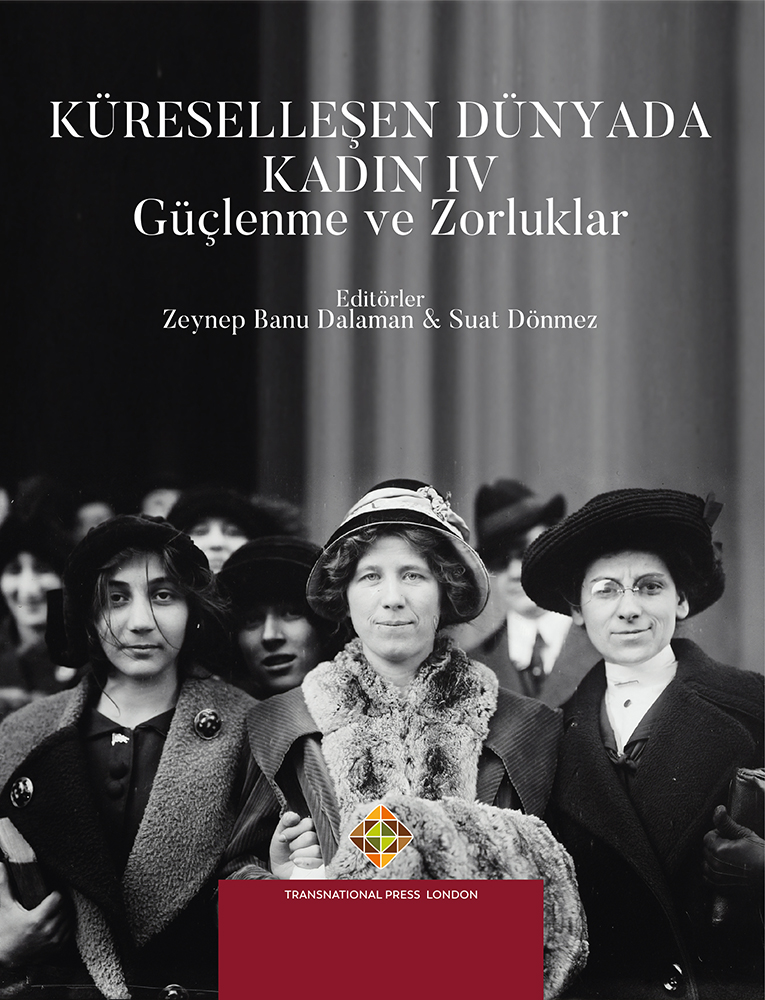
Keywords: Tiyatro; Meddahlık; Eril, Kadın; İki Oyun; Çağdaşlaşma; Theatre; Meddah; Masculine; Woman; Two Plays; Modernisation
Meddah is a masculine tradition. This theatre tradition has emerged in the Ottoman period, from the 17th century onwards. It is a genre in which the meddah synthesises the skills of imitation and narration of a story. How can meddah, a masculine tradition, be modernised today? Or can meddah be shared with the audience by an actress? In societies where women are side by side with men in social life, the tradition of meddah, a masculine genre, can and should be undertaken by actresses. Based on this aim, after analysing meddah as a traditional genre, two plays were studied and shared with the audience as an application method. One of these plays is a one-person documentary play that Prof. Dr. Nurhan Tekerek edited-directed-performed from Zeynep Oral’s book “Kadın Olmak”: “Kadın Olmak- Being a Woman, the other is the text “Zilli Şıh- Shake with Bells” written by Haşmet Zeybek and directed and acted by Prof. Dr. Nurhan Tekerek. “Kadın Olmak” was created by blending the stories and poems of oppressed women from different cultures who participated in the “World Women’s Meeting” held in Nairobi in 1985. In the staging, the tradition of Meddah has been modernized. To highlight the documentary feature of the play, the play was coloured with images of war, productive women from inside and outside the book, and music. “Zilli Şıh,” a meddah story written by Haşmet Zeybek and directed and acted by Prof. Dr. Nurhan Tekerek, conceived in the eighties, has been presented to the audience since 2005. The narratives presented by male meddahs in the Ottoman period to an audience consisting solely of men were, this time, performed by an actress and shared with a heterogeneous audience. After both plays, it was concluded that the tradition of meddah, a masculine tradition, should not be approached from a sexist perspective today and that an actress can now exist in the world of theatre as a meddah. Therefore, meddah is an important source that we can benefit from today by modernising it without sexist discrimination.
More...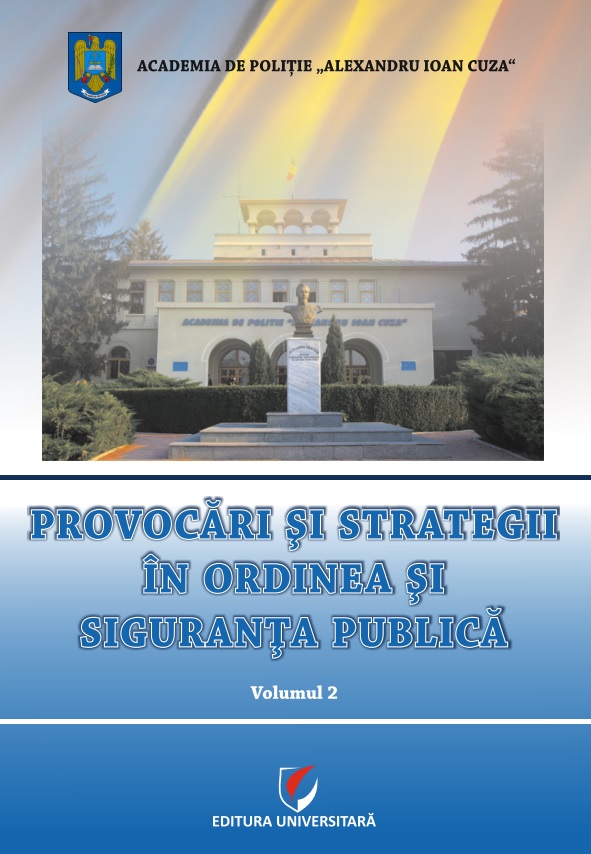
Keywords: The war in Ukraine; public security; threats; risks; vulnerabilities; organized crime; terrorism;
Started in February 2022, through a military aggression by Russia, the war in Ukraine represents a threat to international security, but it can affect, without reaching the generalization of the conflict, the public security of the states of Europe, but especially of the states near the area of conflict.Like any military conflict, it generates a series of crises in the economic, social, humanitarian, public order etc. The huge wave of refugees transited the states bordering the conflict, to take shelter from the war, generating a series of social problems in the destination countries.The challenges to public security must be analysed from multiple perspectives: of crime, of public pressure determined by the population of the destination countries, of the economic and social impact that the European Union states must sustain for supporting the Ukrainian war effort, and subsequently for reconstruction of affected areas.In creating scenarios of crisis evolution, past events must be considered. The refugee crisis caused by emigrants from North Africa and the Middle East has caused a series of economic and social problems in Europe, sometimes culminating in population protest movements against population that have committed delicts or crimes.Refugees or migrants are not always just helpless people running from war or repression in their countries of origin; elements that are part of organized crime networks or, why not, terrorist can easily infiltrate among them.Starting from some certain aspects, the article wants to identify and analyse potential aspects that could affect public security, in the context of the Ukrainian crisis.
More...
Keywords: money laundering Romanian crime; organized crime; public order; Russia’s war in Ukraine
The new geopolitical and geostrategic realities in the context of the war in Ukraine led to the exacerbation of common law crime and white collar crime and they represent a threat to National Security by making the integrated defence systems of National Security and public order vulnerable. An increase of corruption among civil servants and law enforcements led to the development of some unlawful underground economies powered by the war of Ukraine. Consequently, it results in a “sick” economy with direct effects on the regular citizen amplified by the arisal of new methods and forms of committing a crime in the context of the globalization of criminality which represent both a plague of this millenium and the biggest threat to the “healthy” development of a democratic state. Therefore, it is necessary to strengthen the legislative acquis and the system of public order and national security in order to fight against criminality in the context of new challenges that feed the anomie in society.
More...
Keywords: military invasion in Ukraine; massive influx of displaced persons; temporary protection; solidarity; emergency mechanism; phenomenon management;
Following the military invasion by the forces of the Russian army launched on 24.02.2022 in Ukraine, at the level of its neighboring states and beyond, there was a massive influx of people displaced from this country, the groups of people being made up both from Ukrainian citizens and and from citizens of other states that, at the time of the invasion, were living in or transiting Ukraine. This aspect determined the creation of a mechanism for quick and appropriate measures both at European and national level to manage this phenomenon. At the European level, on 04.03.2023, the Council issued the Decision (EU) 2022/382 and activated the temporary protection provided by Directive 2001/55/EC regarding the minimum standards for granting temporary protection, in the event of a massive influx of displaced persons, and the measures to promote a balance between the efforts of the member states to welcome these people and bear the consequences of this reception, all displaced persons from Ukraine, who entered the territory of the EU after 24.02.2022, benefiting from this measure. At the national level, on 18.03.2022, it was issued the Government Decision no. 367 regarding the establishment of conditions for ensuring temporary protection as well as for the modification and completion of some normative acts in the field of foreigners, which regulated the granting of temporary protection on the territory of Romania. Temporary protection is an emergency mechanism that applies in the event of a massive influx of people and aims to provide immediate and collective protection. The aim is to ease pressure on national asylum systems and allow displaced people to enjoy harmonized rights across the European Union.
More...
Keywords: letters technique; procedure; water distribution; discharge; water jet;
In order to streamline the extinguishing of fires that occur in enclosed spaces, it is necessary to know how the water is distributed at the level of the floor of a room, by using different water discharge techniques. The „T”, „Z” and „O” letters technique is one of the methods of water discharge used to extinguish fires that occur inside rooms. For a thorough knowledge on how the water is distributed inside the room, a procedure was developed to perform tests by discharging the water in the form of the „T”, „Z” and „O” letters which were especially constructed for this purpose. There were also constructed sheet metal boxes used for the accumulation of discharged water. The usefulness of this procedure has been verified by performing three tests to discharge the same volume of water using the „T”, „Z” and „O” letters technique, resulting in the following data: the largest volume of water was recorded in the immediate vicinity of the wall located perpendicularly to the direction of propagation of the water stream (in the first two rows of boxes), respectively in the corners of the test room, arranged at the level of this wall; using the „Z” letter technique, the smallest water loss was recorded; using the „O” letter technique, the water was discharged in the shortest time, being distributed more evenly than by using the „T” and „Z” letters technique.
More...